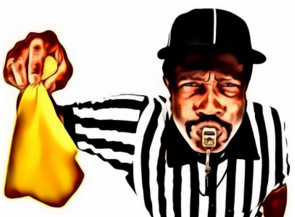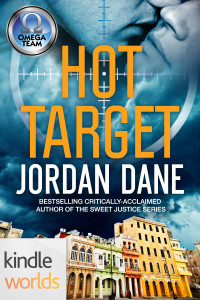I make a lot of bold declarative statements about writing. In my writing books, on my website, and in front of wide-eyed audiences at workshops and conferences who in some cases are thinking, “who the hell does this guy think he is?”
All of us who write about writing do it to some degree. Sometimes it’s intentionally delivered inside out (because writers don’t like other writers telling them what-is-what, unless they are famous novelists who aren’t in the business of teaching craft, in which case they eat it up), such as saying there are no rules and then proceeding to describe things you can and cannot do (the latter disguised as “should not do, but hey, there are no rules, so ago ahead and shoot yourself in the foot if you want to”), or saying that story isn’t driven by structure and then proceeding to describe the very same structural paradigm the rest of us – those who understand story IS structure – are saying.
No wonder this craft is so hard to learn.
I try to avoid the inside out approach. I prefer to go straight at it, thus causing all manner of outrage and confusion, often by writers who are still laboring under the false creed that you can write fiction any ol’ way you want… because there are no rules.
Yes, you can write “any ol’ way you want.” Sit naked in a tree and scribble on a used shingle, whatever gets you there. Process isn’t the point, even though an informed process is always better than spit-balling blindly (it is the nature and clarity of “informed” that is what we are seeking here).
What is the point is the form and function of a properly told story… and THAT is something you absolutely can’t render “any ol’ way you want.” In other words, if you want to sell your story to others, you can’t reinvent the form of the novel in today’s market. And if you’re not completely clear on what that “form” is, then too often your efforts might indeed seem to be an intention to reinvent it entirely.
Reader’s, especially in genre fiction, don’t want a reinvented wheel. Our readers have expectations where form and format is concerned, and inside those lines we have infinite freedom to do our thing.
It is the understanding of those lines where our fortune is made or compromised.
My favorite principle, perhaps the most liberating and useful truism of all relative to story structure, is that of the “most important moment in a story.” That’s my opinion of course, and I hold that opinion because absolutely everything else – concept, premise, dramatic arc, pacing, character arc, conflict and tension, even the ending – depends on getting this one right.
Do I have your attention? I hope so. Because this can change your entire writing career, right here.
Some writers spend decades never quite getting this. And because there are myriad ways to present it, clarity can be elusive. Yet every writer posting here, and every writer who has their name on a successful novel, understands this principle – the principle of the Most Important Moment in a story – to a practicable degree, even if they call “it” (the Most Important Moment in a story) by another name.
This us as true for organic and vocal pantsers as it is avid story planners and outliners. Because this principle cares absolutely nothing about your process.
All processes, no matter how different, end up seeking the very same outcome relative to all those issues of craft I just listed above. And thus, the Most Important Moment in a story applies to and serves stories born of any and every conceivable writing process out there.
The tee up for this… too long, I’ll grant you. So here it is.
“The Most Important Moment” in a story is known by different names, depending on who is talking about it. That said, it doesn’t change a thing about what is true and liberating about it, or how it is best implemented within a story.
“The Most Important Moment” in a story is the inevitable story twist or turn or milestone (pick your terminology) when everything changes, and does so in a way that launches the core dramatic thread of the story. This usually occurs after a strategic stretch of set-up pages (which, to complicate the issue, may actually include lesser twists that, when viewed in retrospect, are actually contributing more to the setup in which they appear than to the moment – the Most Important Moment – in which the hero’s story journey truly launches) that includes the introduction of the story world and our first glimpses of the hero, as well as the stakes and the contextual presence of impending antagonism.
All of that setup is called, in story structure parlance, Act One… or if you view the entire story arc as a four part proposition (as I do, also quite defensible), Part One (of four). These are exactly the same structural models, by the way, with identical milestones and optimal targets for them.
The Most Important Moment in a story occurs at the transition point between Act 1 and Act 2 (in three-act structure), or between Part 1 and Part 2 (in four-part structure).
Now that we know where it goes, allow me to describe what it is, and what it does.
It is the moment when your hero’s near-term story journey actually begins (launches) in earnest. When the hero’s problem or journey or quest or goal for the story (which often puts the hero’s other plans on hold or in jeopardy) is fully put into play in a way that said hero must do something about it… even if that simply means running for their lives, or just as often seeking information that keeps them safe and/or moves them forward.
The hero responds to the sky falling, for better or worse. Or in most subtle cases, when the first rumble of something isn’t what it seems confronts the hero’s awareness… or if not then, then at least the reader’s suspicions.
This moment – I call it The First Plot Point – is self-defining in terms of where it occurs within the sequence of the story. Not because it is a “rule” or even a principle, per se, but rather, as the collective sum of evolved story sensibility among writers who know how a story best works, as evidenced by the fact that virtually every successful novel and film places this “Most Important” Moment within a very thin window of variance, almost every time.
Because a setup can only last so long.
Or, if you don’t honor the setup completely, you leave the reader without a situation to empathize with or stakes to understand. It takes time to get those reader emotions into play, just as it takes time to foreshadow and install the mechanics of plot into the narrative before hitting the “on” switch.
(As a side note, every movie preview, without exception, shows you the First Plot Point of that story after a quick glance at the setup itself… go online and watch a bunch of them and you’ll notice this clear, now that you know what it is.)
Someone once said – and if you know who, let us know, because I’m not sure who said it first – that “it isn’t a story until something goes wrong.”
Wrapping your head around this is a career-changing truism – because there is so much that it demands of your understanding of your story, both before and after you tell us (within your narrative) what is it that will go wrong, or has gone wrong. Believing this, and implementing it properly and powerfully, is the key to writing a great thriller, or more broadly, writing a novel at all.
Here’s the math of bestsellers: The degree to which the sum of your hero’s compelling nature (for better or worse) and the fear or anticipation or vicarious titillation that strikes you reader when they learn what might go wrong, is the degree to which your story has the potential to work.
The setup act/part (roughly the first quarter of the story or slightly less) is often character-centric. But when the First Plot Point turn hits the page (when something goes wrong, or shows itself and about to wrong), suddenly the character has something to do. Or, the reader has something to fear for them. A problem or a need or a quest is thus launched at this point.
In other words, this is where the plot fully kicks in, after all that initial setup characterization (truly the best and often only place you should play with backstory), world building and foreshadowing has made it meaningful, both for your reader and for your hero.
Here’s why the principle of the Most Important Moment in a story works:
Fiction is driven by conflict.
Character is revealed by how your hero responds to and overcomes conflict (rather than, as too many new writers believe, by a backstory or quirks or simply a fully documented inventory of who they are in their life).
Conflict, then, becomes the fuel of the story, the centerpiece of dramatic arc itself.
And conflict, while hinted at or even partially ignited, is usually fully and best inserted into the story at The First Plot Point… which is The Most Important Moment in a story.
Why? Because if you screw this up – if you delay too long, or rush it, or the worst-case sin of omitting it altogether in favor of further characterization and world building – the story simply won’t work as well as it will when you get this right.
That’s just a fact. Read a novel or watch a movie and see where it happens (see the previous side-not about movie previews). Of course, you need to have an eye for recognizing this critical moment in a story – not always easy is a story riddled with twists and meaningful shifts – which is where nay-sayers find encouragement and thin basis to trash this principle altogether.
The First Plot Point isn’t a fixed insertion point. It is presented as a target general range of optimal insertion. In the hands of experienced, successful writers it almost always ends up in that range (sometimes after revision moves it there)… because this is how it works best: after a setup that lasts from about 20 to 25 percent of the story’s length.
That’s not formula, that’s story physics. It’s the natural law, the gravity, of genre fiction. Mess with gravity at your peril… because doing so (in storytelling, and in life) can get you injured or killed.
Again, the First Plot Point is where the core dramatic story – the collision of present or impending conflict and your hero’s intentions and needs – comes front and center into the narrative, thrusting your hero down a new and unexpected path than whatever occupies their intentions prior to that moment.
Want an example or two?
In Titanic, it’s when the ship hits an iceberg. Nobody ever misses that, though many don’t understand that they are witnessing the Most Important Moment in the story (duh, we don’t have a story without it, which not ironically is the case in almost every story). Everything prior to that moment was pure setup for that moment. Everything after that moment occurs in the presence of – in context to – fresh or more fully drawn dramatic tension, creating a path in context to a need or goal that wasn’t present before that moment hit.
In The Help, Skeeter (one of three narrators and two equal protagonists) realizes she needs the assistance of the town’s largely oppressed black maids to write the book she hopes will change her life (that being Skeeter’s stakes; her intentions didn’t begin as the need to right wrongs)… and they refuse her, thus putting her on a new and unexpected path to win their trust. Everything prior to that moment was there to show the reader/viewer the stakes of the story on all fronts while introducing us – while earning our empathy – to the main players and their pre-First Plot Point lives.
In both examples, the First Plot Point changes everything. In both examples – indeed, in pretty much any successful story you can find these days – the First Plot Point occurs between the 20th and 25th percentile of the story.
It’s not formula (the only people who say this are voice in writing forums who don’t know better; experienced writers know it is anything but formula, it is natural literary law, one of the most important facets of the storytelling craft).
It is story sensibility, based on what history has proved to be the way readers engage with and react to a well-rendered story. The trick then – and this has always been true – to succeeding in the writing journey is to evolve one’s story sense to a point where this awareness, and many others, become second nature, unquestioned regardless of one’s process.
And so, we get to choose.
Now so much how we write our stories as a process, but how we choose to render those stories once we are done wrestling them to the page.
Because when informed pantsers pants (this being an informal verb in this context), this awareness is what they are pantsing in context to; and when informed planners plan, this is what they plan in context to.
Uninformed writers in either case are left to rely on their current state of story sensibility, and if that exists without an awareness of this principle, the odds of getting it right are… well, this explains why 990 out of every 1000 novels submitted by “first-time” novelists to traditional publishers are rejected.
Think about what you didn’t know when you started. Chances are this principle was on that list. If that’s you… now you know. Or at least you have a new awareness… you’ll know soon enough.
This is 101 stuff for experienced writers, though the terminology used here may be unfamiliar (hey, in Finland the word for gravity is painovoima, but it’ll still get you killed if you jump of a building not knowing better). But for newer writers, this is a key truth they seek to cull from books and workshops and blogs and coaching and their own reading, because this is absolutely essential to making their writing work.
Or not… they just believe that loud guy in the writing forum who says all you need to know about structure if beginning-middle-and-end. We get to choose.
Once you know what goes wrong in your story, and how this sucks your hero into the narrative in a way that puts her or him on a collision course with consequences (stakes), you will have isolated your core story, also known as the dramatic arc.
And once you know that, your next step is to put it into play within your story: at the First Plot Point, after a solid amount of setup that makes the reader care about the hero for whom this new quest is about to begin.
(If you’re interested in an upcoming workshop that dives deep into this realm of craft, click HERE.)




